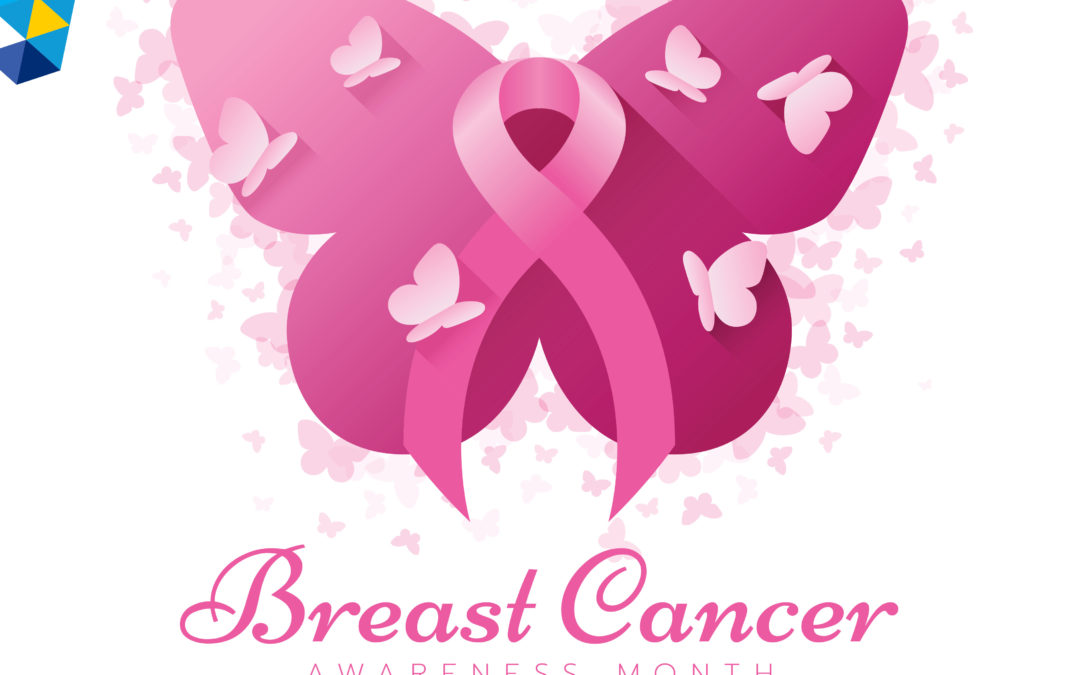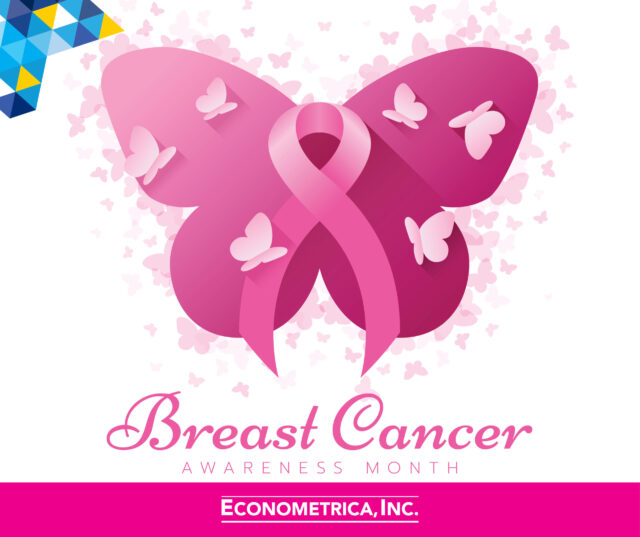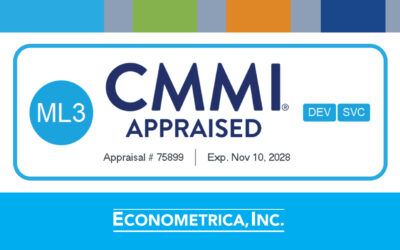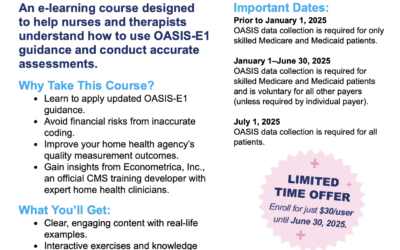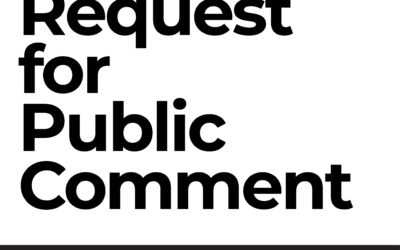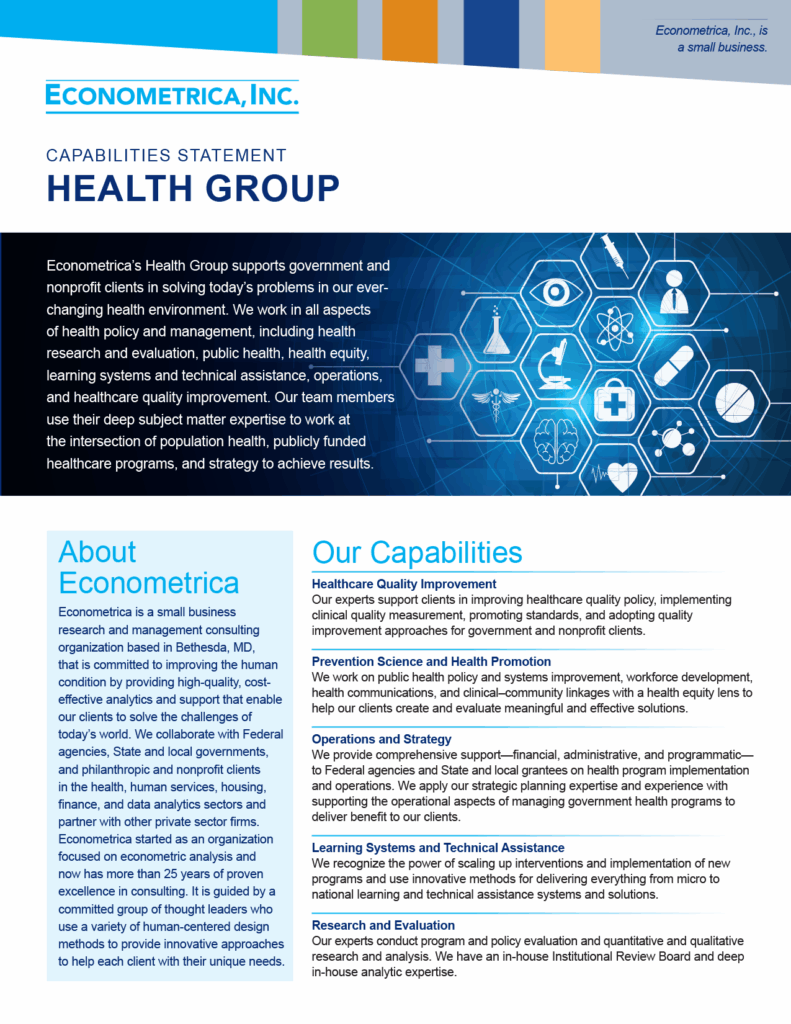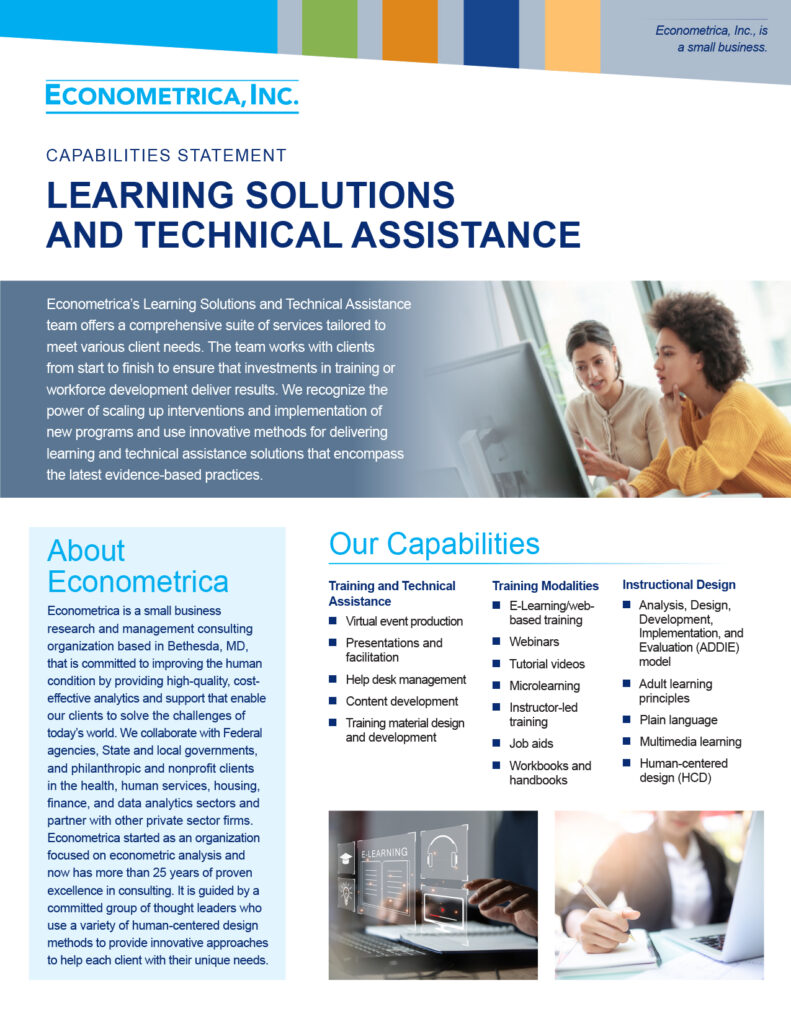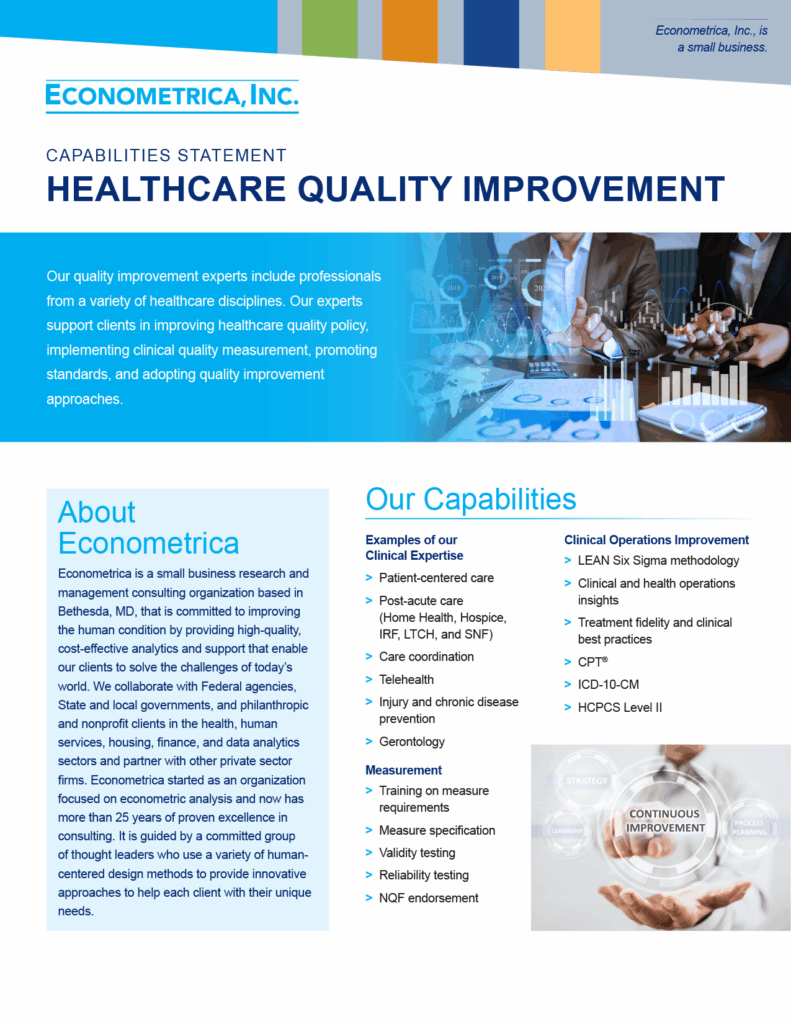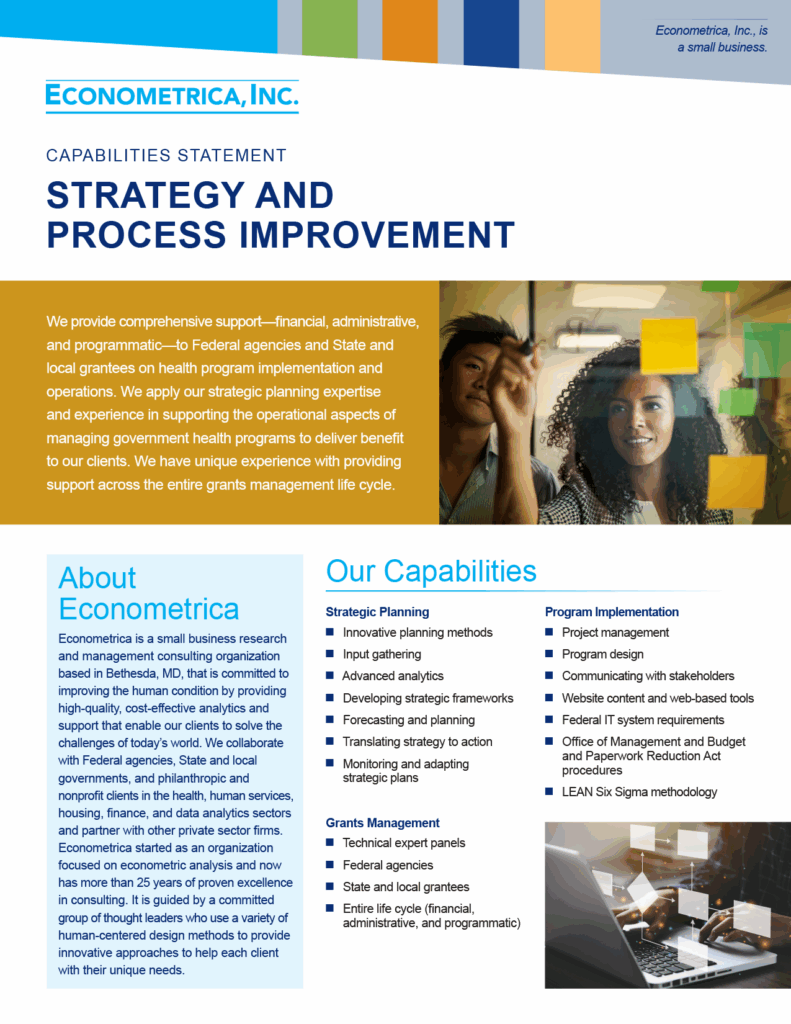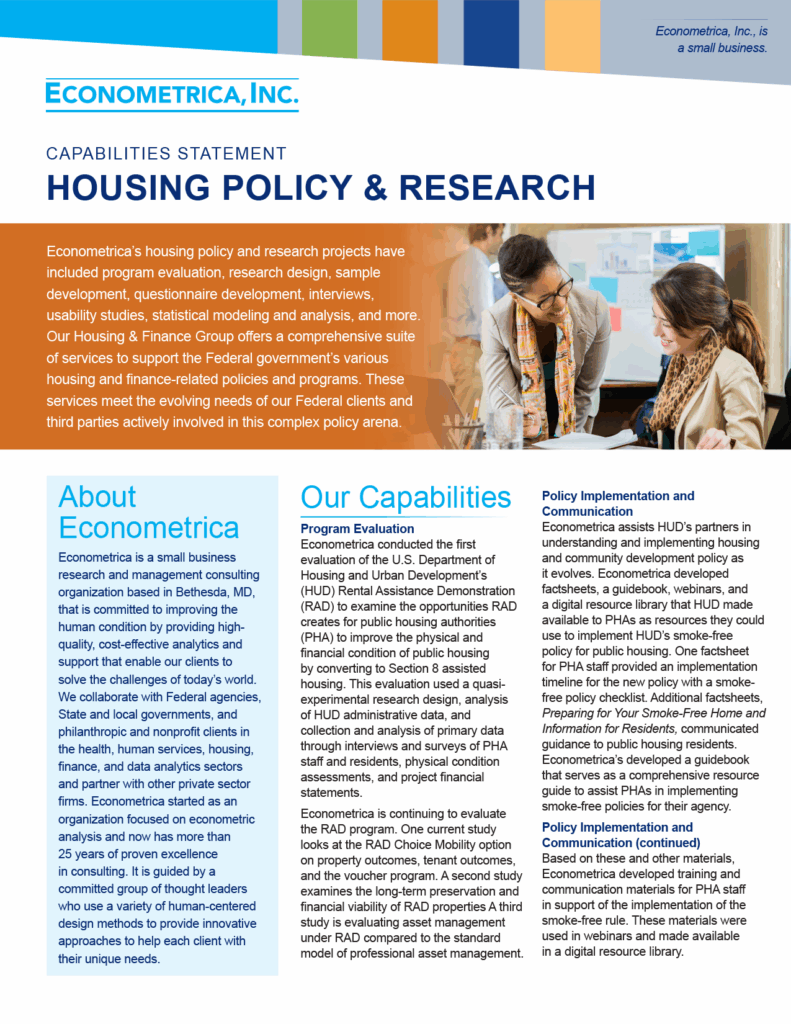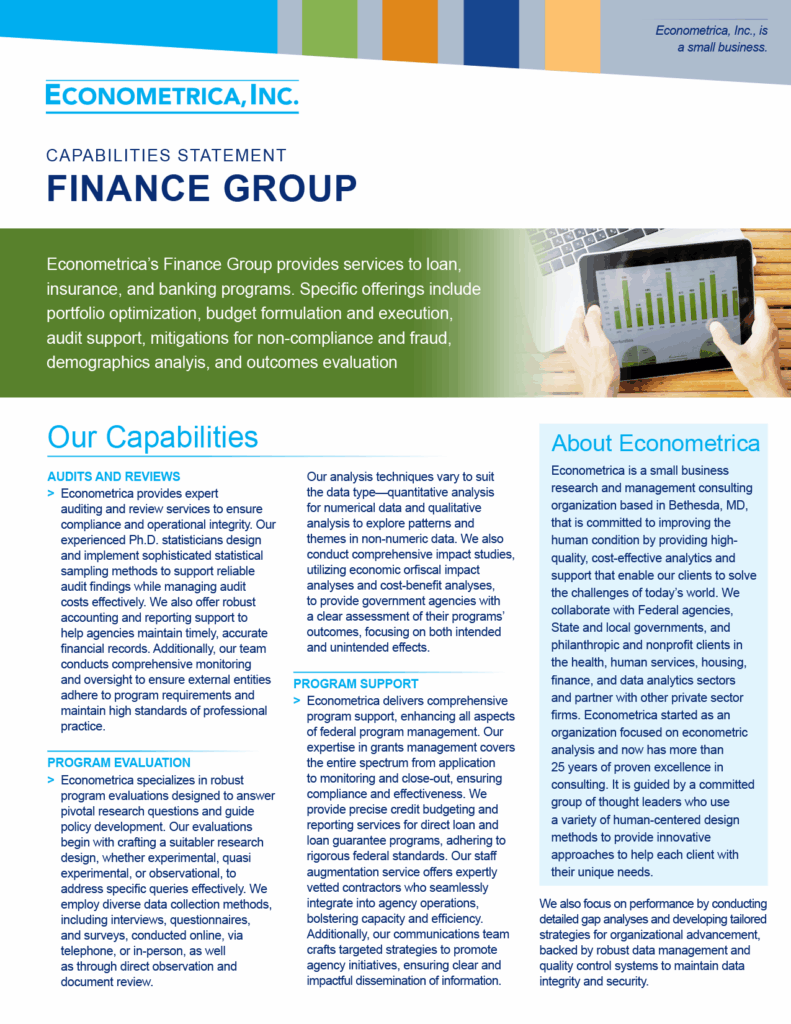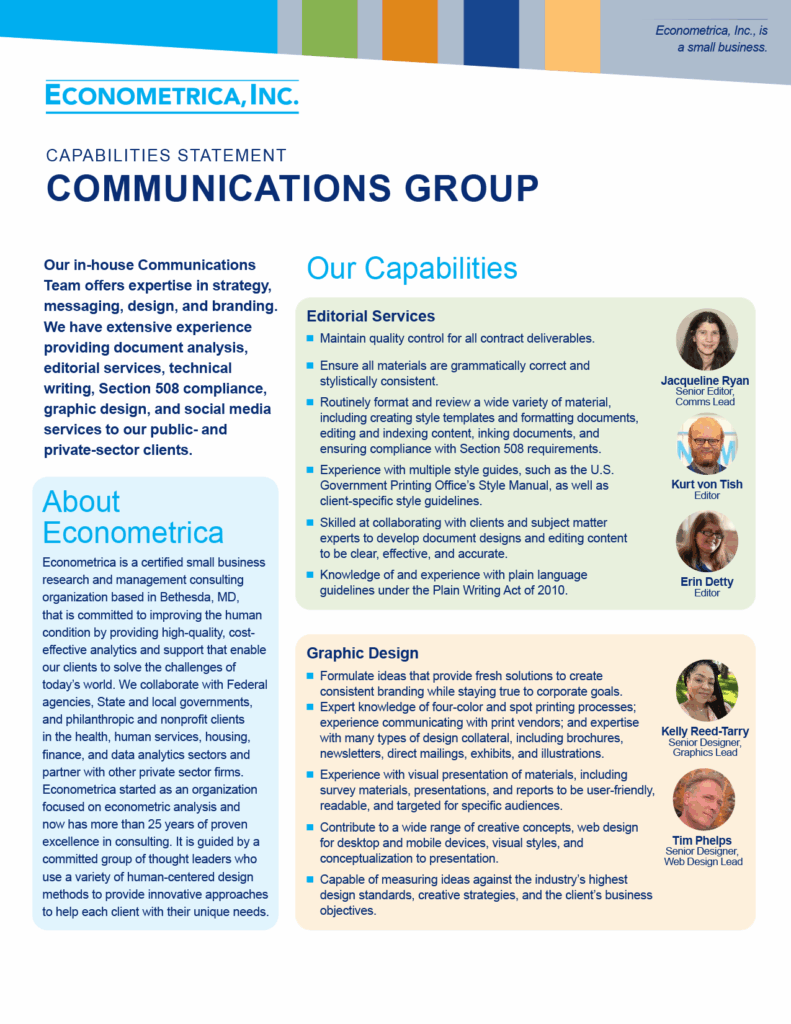Econometrica is excited to announce that we have recertified for another 3 years with Capability Maturity Model Integration. This means that Econometrica…
• Has established planning processes.
• Maintains a consistent feedback loop to identify and address issues.
• Works with our staff to adhere to organizational capabilities.
• Has process assets, job aids, and standard processes by which we do business.
• Measures for quality.
Our team has policies and procedures that ensure quality and create an ongoing process for quality improvement. When we work with you, you are guaranteed that our work is of high quality and is constantly improving. We look forward to partnering with you.
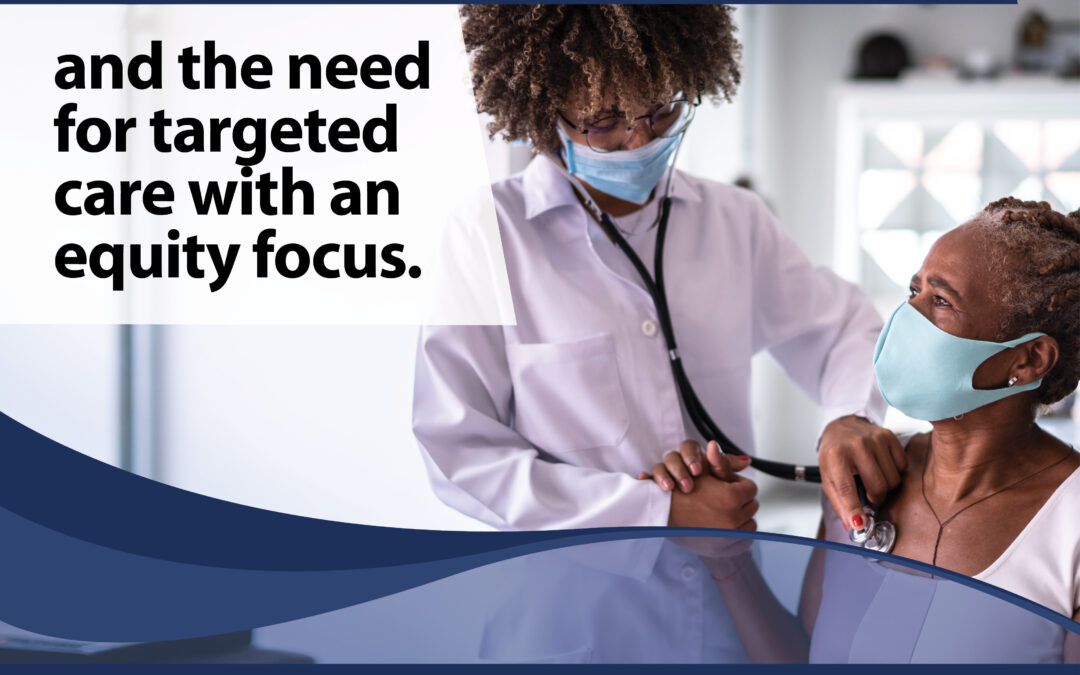
The Long COVID Dilemma
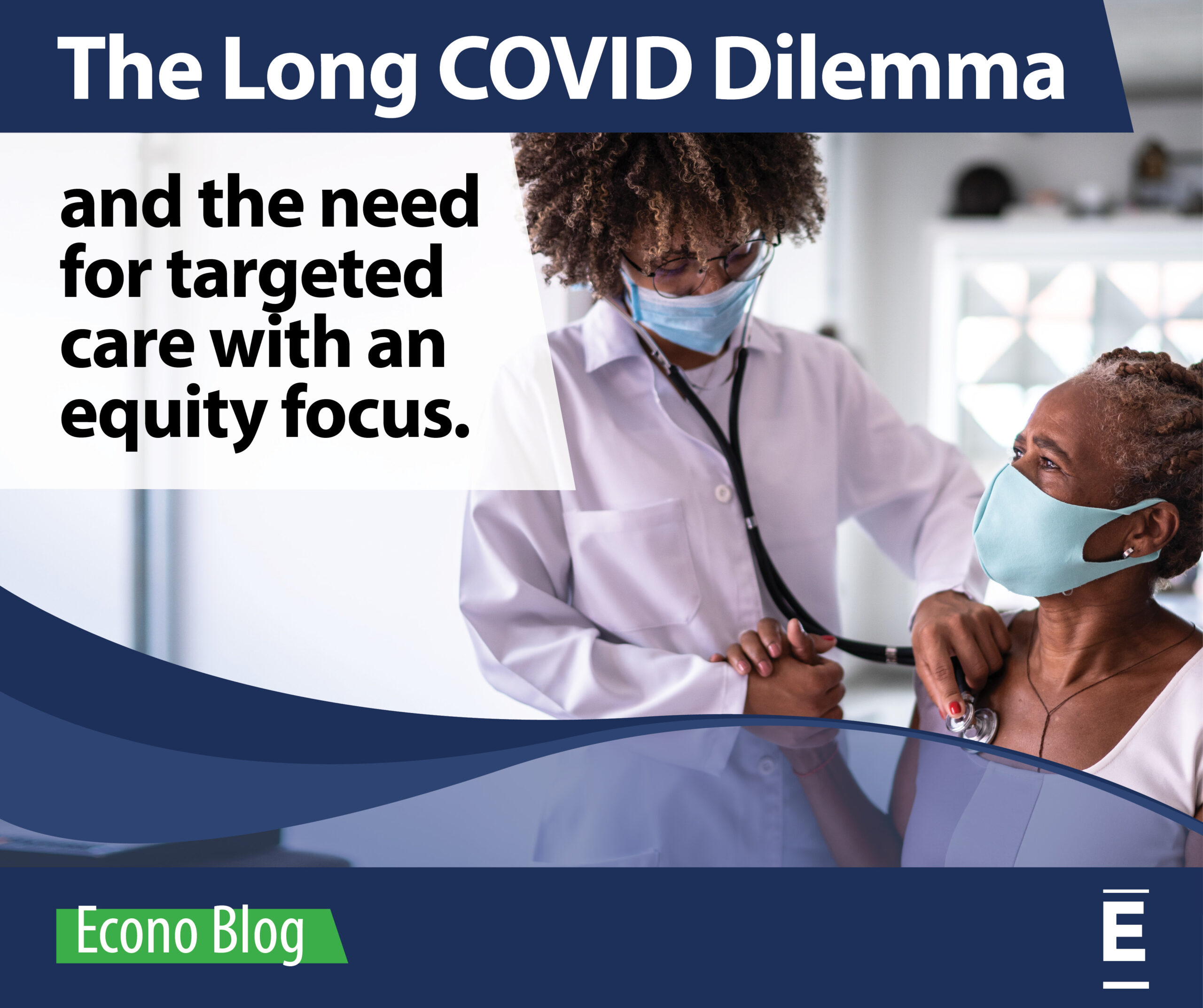
SARS-CoV-2 Infection (COVID-19)
In 2022, SARS-CoV-2 infection (COVID-19) was listed as an underlying or contributing cause of 244,986 (61.3 per 100,000) deaths in the United States.1Beyond the acute-phase severity of the disease, we have learned that symptoms can linger or recur over months or years, resulting in ongoing disability: the Kaiser Family Foundation reports that the “percentage of people who have had COVID and currently report long COVID symptoms declined from 19% in June 2022 to 11% in January 2023. Despite the decline, the rate of long COVID among people who have had COVID remains high.”2 For some groups, the numbers are even higher.3
Whole-Person Care with an Equity Focus
The long COVID journey can be protracted and especially difficult for persons with fewer healthcare resources. Important whole-person supports include non-medical factors such as access to transportation to get to healthcare appointments, as well as access to nutritious food, a safe home environment, educational opportunities, and financial resources. These can all impact health and well-being during the recovery period.
Trauma-Informed Care
Families and caregivers were traumatized as well. Implementing the principles of trauma-informed care: safety, choice, collaboration, trustworthiness and empowerment,4 can be reassuring to patients and caregivers living in fear of reinfection or relapse. The experience of contracting the virus was terrifying for many, whether or not the disease led to hospitalization. And for those who suffered long hospitalizations with respirator care, contracting COVID-19 was an especially traumatic event.
At Econometrica, our experts work extensively with Federal agencies, subject matter experts, and stakeholders to shape services that are inclusive for all persons’ healthcare needs. We understand that chronic disorders can carry a heavy burden for underserved communities, and we coordinate with agencies and funders to look for ways to support persons with elevated needs.
Resources
1 Ahmad FB, Cisewski JA, Xu J, Anderson RN. COVID-19 Mortality Update — United States, 2022. MMWR Morb Mortal Wkly Rep 2023;72:493–496. DOI: http://dx.doi.org/10.15585/mmwr.mm7218a4 https://www.cdc.gov/mmwr/volumes/72/wr/mm7218a4.htm
2 Kaiser Family Foundation. Long Covid: What do the latest data show? January 26, 2023. https://www.kff.org/policy-watch/long-covid-what-do-latest-datashow/#:~:text=As%20of%20January%2016%2C%202023%2C%2015%25%20of%20all%20adults,are%20no%20longer%20reporting%20symptoms.
3 Goldie PD, Chatterjee I. Examining the elevated risk of COVID-19 in transgender communities with an intersectional lens. SN Soc Sci. 2021;1(10):249. doi: 10.1007/s43545-021-00255-x. Epub 2021 Oct 6. PMID: 34693307; PMCID: PMC8492083. https://www.ncbi.nlm.nih.gov/pmc/articles/PMC8492083/
4 University of Buffalo, Buffalo Center for Social Research. What is Trauma-Informed Care? https://socialwork.buffalo.edu/social-research/institutes-centers/institute-on-trauma-and-trauma-informed-care/what-is-trauma-informedcare.html#:~:text=The%20Five%20Guiding%20Principles%20are,to%20providing%20Trauma%2DInformed%20Care
Work With Us, Work for Us
Econometrica, Inc., is a small business research and management consulting organization based in the greater Washington, DC, metropolitan area. We are committed to improving the human condition by providing high-quality, cost-effective analytics and support that enable our clients to solve the challenges of today’s world. We collaborate with Federal agencies, State and local governments, philanthropic and nonprofit clients, and private-sector partners in the public health, healthcare, data analytics, housing, and finance sectors.
To work with us on your next project, visit us online or email us at Info@EconometricaInc.com. To explore the benefits of working for us, visit our careers page. Follow us on LinkedIn, X, Facebook, and Instagram.

